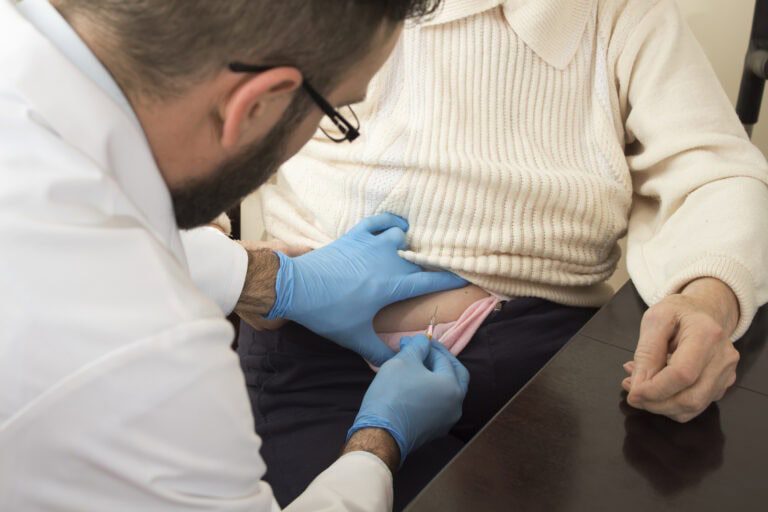What is holistic addiction recovery?
You’ve probably heard the buzzword “holistic wellness” in addiction recovery. What is holistic wellness for addiction recovery? Holistic wellness and the associated therapy is an approach that focuses on the entire person. There is compelling scientific evidence that indicates that this approach is very beneficial for addiction recovery.
Addiction is a complicated disease that affects not just the body, but the mind and spirit, as well. This is where holistic interventions come into play.
Holistic wellness for addiction recovery treats the mind, body, and spirit and focuses on whole-person healing. It draws on complementary and alternative practices, such as yoga, breathwork, adventure therapy, meditation, and others, to help you find balance and improve your overall well-being.
Here’s everything you need to know about holistic wellness for addiction recovery
What Happens in Holistic Addiction Recovery?
There’s a wide variety of holistic wellness therapies that you can participate in, and your experience will depend on what therapies are a part of your addiction recovery treatment plan. If your recovery includes yoga, you might practice Asanas, which are physical poses. If breathwork is part of your plan, then you might do various breathing exercises.
Adventure Therapy for Treatment of Substance Use Disorder
Many studies have been conducted on various holistic wellness approaches. The research shows that these methods are effective for treating substance abuse disorders and addictions.
A study, published in the journal Psychology of Addictive Behaviors, found that holistic treatments combined with traditional therapy work best for those hoping to stop using drugs.
In another study, it was found that breathwork helped reduce drinking in those diagnosed with an alcohol use disorder.
Research published in the journal Substance Use and Rehabilitation, suggests that mindfulness therapy can produce significant therapeutic effects on substance use disorders and prevent relapse.
Studies have found that adventure therapy is a promising treatment option for those with addictions. Spending time in nature offers many benefits that make it a great adjunct treatment for substance abuse disorders.
Take Our Addiction Quiz for Recovery Insights
Benefits of Holistic Wellness for Addiction Recovery
Holistic wellness therapies have been around over 3,000 years. A growing body of research suggests that a holistic approach is ideal for addiction recovery and offers many benefits.
Lowers Stress
Research conducted by Harvard Medical School found that yoga helps reduce stress hormones adrenaline and cortisol, thereby lowering stress levels. This is very beneficial for people in recovery — lower stress levels equals less of a need to self-medicate with alcohol or drugs.
Reduces Cravings
A narrative review found that yoga reduces substance use, as well as cravings. That is likely because of the meditation and deep breathing techniques central to yoga. They help you relax and reduce stress, so there is less of a pull to use substances.
Improves Brain Health
Holistic wellness treatments can also improve brain health — something that is helpful in recovery in order to enable the brain to heal from the damage done by drugs. Harvard researchers found that regular meditation practice enlarges areas of the brain tissue that help us learn and think.
Helps to Manage Stress In Everyday Life
Another benefit of holistic wellness therapies is that most people can practice and perform them on their own. This can be particularly helpful in preventing relapses, as you can use holistic practices to cope with difficult situations in your everyday life that cause changes in your mood or stress. This reduces the risk of turning to drugs to cope.
Improves Mental and Physical Health
Many holistic wellness therapies, such as yoga and adventure therapy, benefit both mental and physical health. They improve mental well-being and lower stress while strengthening muscles, improving flexibility, and easing body tension.
Is Holistic Wellness for Addiction Treatment Common?
Holistic wellness for addiction treatment and holistic medicine is becoming increasingly common in the United States as a way of addressing both physical and mental health. Nearly 40 percent of adults in the U.S. use some form of holistic treatment.
As a result, more addiction treatment centers are incorporating holistic therapies into their treatment programs, providing an opportunity for clients to focus on both mind and body in treatment.
Holistic techniques are typically used as adjunct therapies along with traditional forms of addiction treatments such as 12-step programs. They are meant to complement, not replace, these other addiction treatments.
Holistic Addiction Recovery Treatment Options
From acupuncture to massage, there are a variety of holistic treatments that can help you improve your well-being and achieve sustained recovery. Here are some of the most common holistic therapies.

Yoga Therapy for Addiction
Yoga therapy for addiction is a mind-body practice that focuses on your emotional and physical health. It uses movement, breathing exercises, and mindfulness to help you relieve stress and relax — things that can help you in addiction recovery.
You don’t have to have any experience with yoga before beginning yoga therapy. Yoga therapy may involve several techniques:
- Yoga postures
- Guided imagery
- Meditation
- Relaxation exercises
- Breathing exercises
- Meditation
Breathwork Therapy
Breathwork therapy is a holistic approach that helps improve emotional health and well-being.
It involves controlling the way that you breathe to affect your autonomic nervous system in a way that reduces stress and anxiety and increases calmness.
Breathwork therapy can be done as part of a substance abuse program. But, it is also something that you can learn to practice on your own, as well. It can be very beneficial in helping you cope with urges to use and stay sober.
Mindfulness Meditation
Mindfulness and meditation have been helping people for thousands of years. Mindfulness meditation helps you become intensely aware of what you are feeling and sensing in the moment, without judgment or interpretation. It combines guided imagery with breathing methods to help you relax the mind and the body.
Mindfulness focuses on acceptance and prevents you from becoming overwhelmed or overreacting in stressful situations that normally trigger substance use. Besides reducing drug use, mindfulness meditation can help with:
- Depression
- Anxiety
- Well-being

Adventure Therapy For Addiction
Adventure therapy for addiction involves activities like rock climbing, hiking, ziplining, kayaking, and camping. It takes place in natural, outdoor settings. Adventure therapy can help clients explore their emotions, feel more open, and find new perspectives while connecting with the outside world.
Besides addiction, adventure therapy has been found to help:
- Reduce suicidal ideation
- Promote self-confidence and self-esteem
- Decrease symptoms of depression
These are all issues that people with addictions often struggle with.
Therapeutic Nutrition
Nutrition is often overlooked in recovery. However, substance abuse robs your body of important nutrients. This can impact both your mental and physical health. Therapeutic nutrition can help heal your body from the effects of substance abuse.
It replenishes nutrients that you may not have been getting during active use. When your nutrition is better, it can make a profound difference in how you feel both mentally and physically. This can increase the odds of staying sober.
Art Therapy for Addiction Recovery
Art Therapy for Addiction Recovery uses creative techniques such as painting, drawing, and working with clay to help clients express themselves and work through their emotions. This holistic treatment is especially beneficial in recovery as it facilitates behavior change. Art therapy has been shown to also help with:
- Depression
- Anxiety
- Trauma
- Grief
- Impulse control
Many of these are issues that people in substance abuse treatment struggle with. Art therapy is ideal for anyone in recovery. You don’t necessarily have to possess artistic talent to benefit.
At Oasis Recovery Center, we believe that recovery is not just about overcoming addiction—it’s about rediscovering yourself and reclaiming your life. If you or a loved one is struggling with addiction, now is the time to reach out. Our compassionate team is here to guide you every step of the way, offering a unique blend of holistic and traditional recovery practices designed to heal the mind, body, and spirit.
We understand that no two journeys are the same, which is why our approach is personalized to meet your unique needs.
From evidence-based therapies like cognitive-behavioral therapy and medication-assisted treatment to holistic wellness practices such as yoga, meditation, and acupuncture, we provide a comprehensive path to recovery. Our goal is to empower you with the tools and support you need to build a healthier, happier, and addiction-free life.
You don’t have to face this alone. Whether you’re seeking help for yourself or a loved one, the team at Oasis Recovery Center is ready to listen, support, and guide you toward lasting change. Our doors are open, and our hearts are ready to welcome you into a community that cares deeply about your well-being.
Take that first step today. Call us or visit our website to learn more about our programs and how we can help. Your journey to recovery starts here, at Oasis Recovery Center, where healing begins and hope is restored. Don’t wait—reach out now and let us help you find your way back to the life you deserve.
Contact us today to get started on your journey to recovery. Our compassionate team is here to support you every step of the way, helping you restore balance, rediscover your strengths, and achieve lasting holistic wellness.









